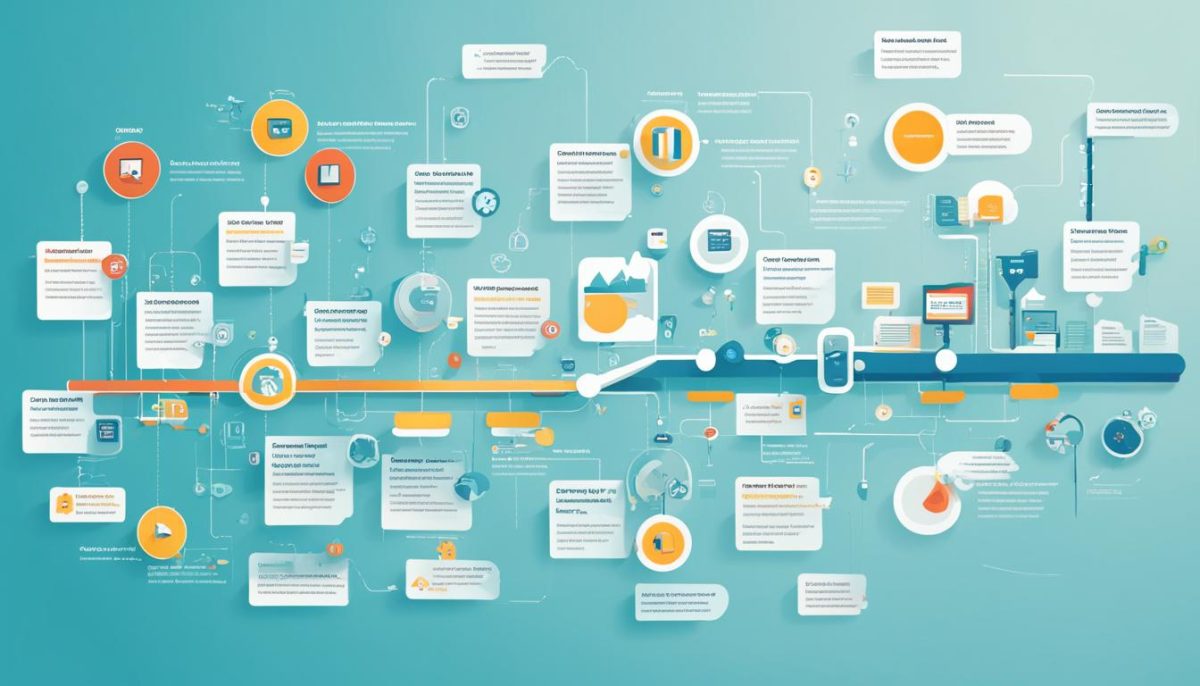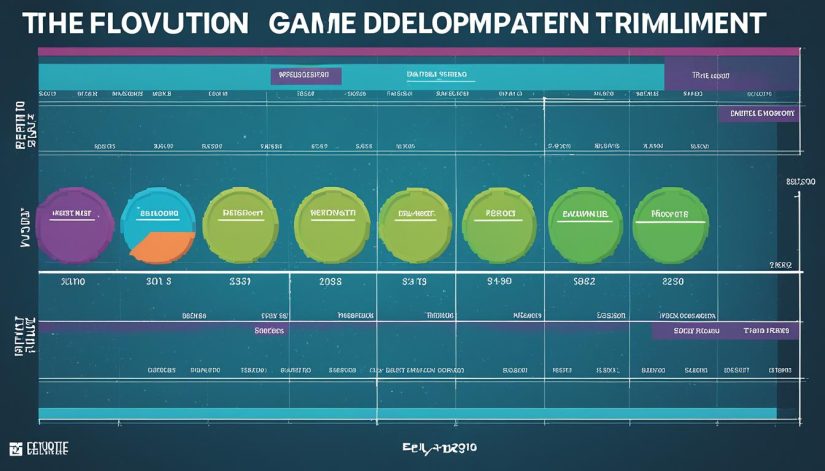In this section, we embark on an epic quest to uncover the secrets behind game development timelines. Ever wondered how long it takes to bring your favorite games to life? Well, get ready to dive deep into the world of game development as we explore the time frame associated with creating a game.
Whether you’re a passionate gamer or aspiring game developer, understanding the process behind game creation can be fascinating. From the initial concept to the final release, each step contributes to the time it takes to make a game. And trust us, it’s not all dragons and magic spells.
So, join us as we unravel the intricate web of game development and discover the factors that influence how long it takes to create a game. Along the way, we’ll explore the stages involved, from planning and design to development and testing. Get ready for an adventure like no other!
Factors Influencing Game Development Timelines
In the complex and ever-evolving world of game development, the time it takes to bring a game from concept to completion can vary greatly. Numerous factors come into play, influencing the overall timeline of the development process. By understanding these factors, both game developers and enthusiasts can gain insight into why some games take longer to create than others.
One of the key factors that significantly impacts game development timelines is the complexity of the game concept. Games with intricate storylines, detailed graphics, and innovative gameplay mechanics require more time and effort to develop. These projects often involve extensive planning, design iterations, and testing phases to ensure a polished and immersive gaming experience. On the other hand, simpler game concepts with straightforward mechanics can typically be developed more quickly.
The size and composition of the development team also play a vital role in determining the duration of the development process. Larger teams with specialized roles and expertise can parallelize tasks, enabling faster progress. Conversely, smaller teams may have limited resources and need to allocate more time to each aspect of the game’s development. Effective communication and collaboration within the team are crucial for streamlining the workflow and minimizing delays.
“Game development is a delicate dance between creative vision and technical execution.”
– John Romero
Technological advancements and the availability of development tools can significantly impact game development timelines. The use of game engines, software libraries, and frameworks can expedite the development process by providing pre-built components and reducing the need for manual coding. Furthermore, the evolution of hardware capabilities enables developers to create more visually stunning and intricate games within a reasonable timeframe.
Another critical factor that influences game development timelines is the scope of the project. The scope encompasses the size and complexity of the game, including the number of levels or missions, available game modes, and additional features. A larger scope may require more extensive planning, design, and development phases, ultimately leading to a longer overall development timeline.
External factors, such as market trends and competition, can also impact a game’s development timeline. Developers may need to adapt their plans or incorporate new features to meet consumer expectations or differentiate themselves from similar games on the market. This dynamic nature of the gaming industry can introduce additional complexities and potential delays in the development process.

As game developers, understanding the factors that influence game development timelines is crucial for effectively managing resources, setting realistic expectations, and delivering high-quality games. By navigating these influences with a keen eye for detail, creativity, and adaptability, game developers can optimize their processes and create extraordinary gaming experiences that captivate players. So, the next time you dive into a new game, remember the intricate dance of factors behind its creation.
Stages of Game Development
Game development is a complex and intricate process that involves multiple stages. Each stage plays a crucial role in bringing a game from a concept to a fully polished and released product. Let’s dive into the different stages of game development and gain a deeper understanding of the journey behind your favorite games.
The first stage of game development is the initial concept and planning phase. This is where the game idea is born and the vision for the game is crafted. Game designers brainstorm concepts, create storylines, and outline gameplay mechanics. The planning phase involves defining the target audience, setting project goals, and establishing a timeline for development.
Once the concept is solidified, the next stage is design and prototyping. Game designers start creating the game’s world, characters, levels, and user interface. Prototyping allows developers to test and iterate on features, ensuring they align with the intended gameplay experience. This stage brings the game to life visually and sets the foundation for the development process.
Development and testing make up the heart of game creation. This stage involves coding, programming, and implementing the features and mechanics designed in the previous stages. It includes tasks like creating game assets, writing code, integrating sound and music, and balancing gameplay elements. Throughout the development process, rigorous testing is done to identify and fix bugs, optimize performance, and enhance the overall gameplay experience.
Lastly, the final stage involves polishing and releasing the game. This is where the game goes through a comprehensive review process to ensure it meets quality standards. Game developers fine-tune gameplay mechanics, optimize visuals, and address any remaining issues. Once the game is polished and ready, it is released to the public, marking the end of the development journey.
From conception to release, game development takes time and effort across multiple stages. Each stage is vital in crafting a game that captivates players and delivers a memorable experience. By understanding the various stages of game development, you can truly appreciate the incredible amount of work that goes into creating the games we love to play.

